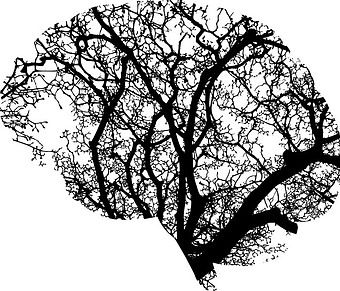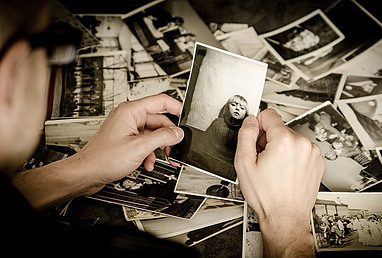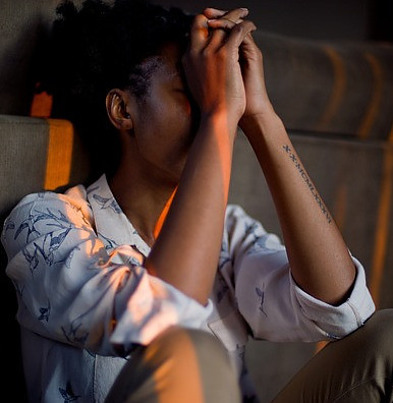
What Does Lack of Sleep do to our Brain?
We’ve talked a bit about how lack of sleep affects our physical and mental health. As I touched on in the previous article, the majority of the effects of lack of sleep happen in our brain. How can we examine something so complex as the brain, and how it is affected by something as mysterious as the process of sleep? While scientists still don’t have all the answers, I hope this article will give you the information you need to take charge of your mental health.
Time to jump into it! What does lack of sleep do to the brain?

Let’s start with reviewing what a good night’s sleep does for our brain:
Clears up the toxins: A huge discovery scientists have made in the last few years that the brain clears out toxins much more rapidly while we’re asleep than when we’re awake. Proteins and other toxins appear to accumulate during the day, and are cleared during sleep. Scientists are also learning about the link between how sleep can also clear out toxins like the β-amyloid protein, which is a precursor to the plaques in Alzheimer’s disease.
Helps our memory: A central function of sleep is that it helps to combine long-term memory, by strengthening necessary neural connections and by disposing unwanted ones. Our brain is busy making connections throughout the day, but not all are worth keeping. When it’s time to sleep, our brain files our memories and makes the decision on which ones are important to keep and which ones can be let go.
Problem solving and cognitive support : Poor sleep affects multiple facets of cognition. A bad night’s sleep can diminish placekeeping, which is the brain’s ability to understand and carry out instructions. Our ability to learn and apply feedback on-the-fly is affected, and we have more difficulty processing emotional info, so we become unable to make informed decisions and frequently make risky choices. To put it concisely, scientists have found that a lack of sleep has effects similar to being drunk. Yikes!

What Is Sleep Deprivation:
Sleep deprivation occurs when someone doesn’t get enough sleep. Most adults need between 7-9 hours of good-quality sleep every night to avoid sleep deprivation.
Sleep deprivation may not necessarily be a sleep disorder, but may be a symptom of a sleep disorder, and could also point to other underlying health issues. The many stressors in daily life — such as work, family, or unforeseen life obstacles — create anxiety and prevent proper rest, causing sleep deprivation.
The two types of sleep deprivation, acute sleep deprivation and chronic sleep deprivation, can have similar symptoms to each other but are usually caused by different circumstances.
Acute sleep deprivation occurs when a short-term interruption in someone’s sleep pattern leads to poor sleep. These interruptions are often anomalies in the individual’s schedule: for example, cramming for a big exam, or staying out late with friends. They can also be caused by sudden stressors that trigger anxious reactions (think of the expression “to lose sleep” over something, literally).
Chronic sleep deprivation occurs when a person suffers from inadequate sleep for a prolonged period— weeks, months, or even years. A person can suffer from chronic sleep deprivation due to a sleep disorder or another health condition, or severe circumstances causing lack of sleep due to stress or an extreme schedule: for example, a person grieving a loved one, or a new parent adjusting to a newborn’s sleep schedule.
Both acute and chronic sleep deprivation can lead to potentially serious mental health issues. This is something especially important to consider if you or a loved one is experiencing anxiety or depression.
Symptoms of Sleep Deprivation
Common— and familiar— symptoms of sleep deprivation include: 
Depression
Irritability
Difficulty concentrating
Poor judgment
Lowered sex drive
Fatigue
Memory issues
Even in the short-term, sleep deprivation can have many unpleasant and potentially dangerous effects on your body and your brain, not only impacting your health long-term, but contributing to challenges that affect your quality of life on a daily basis. A lowered immune system response is a major effect from sleep deprivation, which can leave your body vulnerable to disease and infection.
Anxiety and Sleep Deprivation
Sleep loss immediately impacts your anxiety levels. One night of poor sleep can make stressful situations significantly more difficult to handle.
Studies have found that a single sleepless night can trigger a 30 percent spike in anxiety levels. Your body depends on a full night’s sleep to prepare for potential stressors. Deep sleep, or non-rapid eye movement slow-wave sleep, allows your neural pathways to work at the same time and work efficiently. If you do not get your deep sleep, your brain will not be able to deal with stress, and cannot control your anxiety levels properly.
Sleep Deprivation and Rational Thinking
You’ve likely witnessed what seems like an overly emotional response to a less-than-devastating situation. Think of that shift worker, parent to a non-sleeping baby or grad student. Many of us have been that person before (or maybe you are now, in which case, best of luck to you!). But why do the sleep-deprived have big reactions to small problems? To answer that, we need to ask:
How does sleep deprivation override rational thinking?
The fear center of the brain, known as the amygdala, alerts the body to protect itself during times of danger. Without sleep, the amygdala goes into overdrive, shutting down the prefrontal cortex.
Your prefrontal cortex is key to decision-making, reasoning, impulse control, and also helps your brain figure out whether a threat is “real”. Essentially, your prefrontal cortex is the rationally-thinking part of your brain. When the prefrontal cortex is overridden, logic and reasoning kind-of go out the window.
So, without sufficient sleep, judgment is impaired, emotions run wild, and the ability to think rationally is severely impacted. This has me rethinking my plans to binge Yellow Stone on a weeknight!
Memory Loss and Poor Concentration
This symptom hit me on a personal level, as my mom has struggled for many years with poor sleep and now has been diagnosed with memory loss.
Many studies have found that sleep-deprived people can make twice as many errors during tests, and have three times as many attention lapses as those who get a full amount of sleep.
Lack of sleep can impair rational thought and good judgment, like we discussed above. We’ve all been there, but perhaps you weren’t aware that sleep deprivation also causes memory loss — a sad but true fact. Your sleep plays a key role in memory creation and recall. This is because the brain waves responsible for storing memories are produced during sleep. These brain waves help transfer memories from the hippocampus to the prefrontal cortex, where long-term memories are stored.
If memories stay stuck in the hippocampus and don’t reach the prefrontal cortex, long-term memories aren’t formed, leading to forgetfulness and the ability to concentrate.

Heads up: my posts may contain affiliate links. If you buy something through one of those links you won’t pay a penny more, but I may receive small commission
What can we do to save our brains and get better sleep?
Well, not to state the obvious, but try your best to get a minimum (for adults 18+) of 7 hours of sleep a night — preferably 8-9, if you can. Children (ages 6-12) should get 9-12 hours, and teens (ages 12-18) should get 8-10 hours.
Easier said than done, right? If you don’t suffer from insomnia or another sleeping disorder, try implementing these things to help you towards your goal for better sleep:
– Have a consistent sleep schedule: wake up and go to bed at the same time, the best you can, every day. Try the Philips wake-up lights, which are recommended by physicians and pharmacists for establishing a healthy sleep and wake routine
– Incorporate a bedtime routine: try listening to a meditation exercise or practicing yoga, having a bath, reading a book, or sipping on a warm drink like herbal tea
– Avoid caffeine in the PM and avoid alcohol for a few hours before bedtime.
– Minimize your pre-bedtime blue light exposure: AKA, turn off those electronics!
– Help your body initiate sleep with a cooler room temperature.
– Establish your own wind-down sleep routine that preps your body for a great night sleep. Check out my article 4 easy ways to relax before bed.
– Skip that heavy late-night meal or snack: sometimes stuff happens and you end up eating dinner at 10 pm. Believe me, I get it — and you should never go to bed starving! But do your best to eat your last meal and snacks a couple hours before crawling into bed.
– If you have a really hard time to unwind and need to try a sleep aid, I would recommend a natural one first that has any or a combination of: magnesium L-Tryptophan, GABA, and/or valerian root.
How does lack of sleep affect you? Please comment below if you struggle with symptoms of sleep deprivation and what you do to try to get a better night’s sleep
